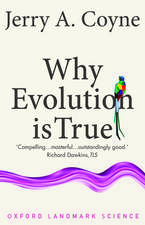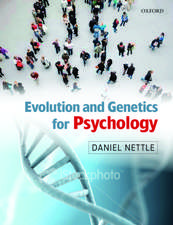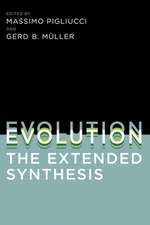For Whose Benefit?: The Biological and Cultural Evolution of Human Cooperation
Autor Patrik Lindenforsen Limba Engleză Hardback – 4 apr 2017
Cooperation is one of life’s fundamental principles. We are all made of parts – genes, cells, organs, neurons, but also of ideas, or ‘memes’. Our societies too are made of parts – us humans. Is all this cooperation fundamentally the same process?
From the smallest component parts of our bodies and minds to our complicated societies, everywhere cooperation is the organizing principle. Often this cooperation has emerged because the constituting parts have benefited from the interactions, but not seldom the cooperating units appear to lose on the interaction. How then to explain cooperation? How can we understand our intricate societies where we regularly provide small and large favors for people we are unrelated to, know, or even never expect to meet again? Where does the idea come fromthat it is right to risk one’s life for country, religion or freedom? The answers seem to reside in the two processes that have shaped humanity: biological and cultural evolution.
| Toate formatele și edițiile | Preț | Express |
|---|---|---|
| Paperback (1) | 691.26 lei 43-57 zile | |
| Springer International Publishing – 21 iul 2018 | 691.26 lei 43-57 zile | |
| Hardback (1) | 944.99 lei 43-57 zile | |
| Springer International Publishing – 4 apr 2017 | 944.99 lei 43-57 zile |
Preț: 944.99 lei
Preț vechi: 1152.43 lei
-18% Nou
Puncte Express: 1417
Preț estimativ în valută:
180.82€ • 189.30$ • 149.62£
180.82€ • 189.30$ • 149.62£
Carte tipărită la comandă
Livrare economică 07-21 aprilie
Preluare comenzi: 021 569.72.76
Specificații
ISBN-13: 9783319508733
ISBN-10: 3319508733
Pagini: 172
Ilustrații: VIII, 172 p. 1 illus.
Dimensiuni: 155 x 235 x 11 mm
Greutate: 0.43 kg
Ediția:1st ed. 2017
Editura: Springer International Publishing
Colecția Springer
Locul publicării:Cham, Switzerland
ISBN-10: 3319508733
Pagini: 172
Ilustrații: VIII, 172 p. 1 illus.
Dimensiuni: 155 x 235 x 11 mm
Greutate: 0.43 kg
Ediția:1st ed. 2017
Editura: Springer International Publishing
Colecția Springer
Locul publicării:Cham, Switzerland
Cuprins
The Human Puzzle.- Your physical self.- Your psychological selfEasily explicable cooperation and natural selection.- Family.- Friends.- Humanity – the paragon of cooperation.- Language.- The last piece of the puzzle? – Cooperation over our heads.- Epilogue: The human super organism.
Recenzii
“For whose benefit? provides insights on human evolution and evolutionary biology. After reading this book, the reader will acquire a vast and general information about evolution. The audience of this book includes general readers or students interested in biology, evolution and basics of cooperation. … the book is an active evaluative discussion of the related ideas and concepts.” (Farid Pazhoohi, Evolutionary Psychological Science, Vol. (04), 2018)
Textul de pe ultima copertă
This book takes the reader on a journey, navigating the enigmatic aspects of cooperation; a journey that starts inside the body and continues via our thoughts to the human super-organism.
Cooperation is one of life’s fundamental principles. We are all made of parts – genes, cells, organs, neurons, but also of ideas, or ‘memes’. Our societies too are made of parts – us humans. Is all this cooperation fundamentally the same process?
From the smallest component parts of our bodies and minds to our complicated societies, everywhere cooperation is the organizing principle. Often this cooperation has emerged because the constituting parts have benefited from the interactions, but not seldom the cooperating units appear to lose on the interaction. How then to explain cooperation? How can we understand our intricate societies where we regularly provide small and large favors for people we are unrelated to, know, or even never expect to meet again? Where does the idea come fromthat it is right to risk one’s life for country, religion or freedom? The answers seem to reside in the two processes that have shaped humanity: biological and cultural evolution.
Cooperation is one of life’s fundamental principles. We are all made of parts – genes, cells, organs, neurons, but also of ideas, or ‘memes’. Our societies too are made of parts – us humans. Is all this cooperation fundamentally the same process?
From the smallest component parts of our bodies and minds to our complicated societies, everywhere cooperation is the organizing principle. Often this cooperation has emerged because the constituting parts have benefited from the interactions, but not seldom the cooperating units appear to lose on the interaction. How then to explain cooperation? How can we understand our intricate societies where we regularly provide small and large favors for people we are unrelated to, know, or even never expect to meet again? Where does the idea come fromthat it is right to risk one’s life for country, religion or freedom? The answers seem to reside in the two processes that have shaped humanity: biological and cultural evolution.
Caracteristici
Describes all levels of cooperation that make up humans and our societies Explains how cooperation evolves Summarizes findings from biological and cultural evolution Includes supplementary material: sn.pub/extras















